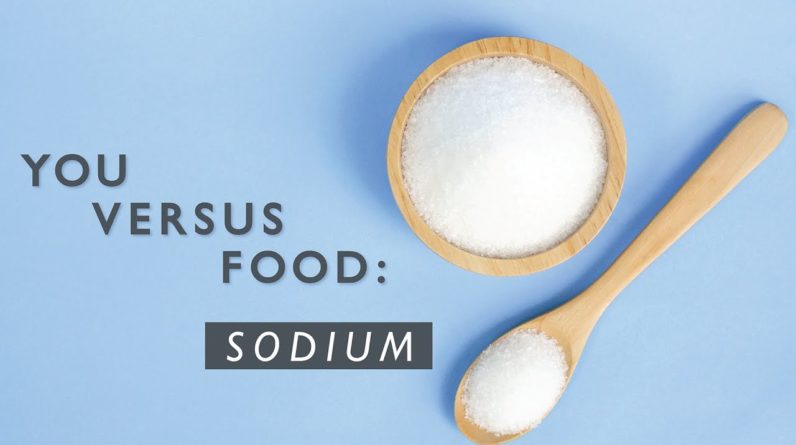
shake shake shake shake shake shake shake your salt shaker hi I'm Tracy Lockwood Beckerman I'm a registered dietician in New York City and it's my job to help you figure out what to eat and why salt has been a topic of conversation since the beginning of time what's the deal why is everyone so salty should we be saying NAC later to salt I'm here to answer all of these questions and more tis the season I mean seasoning so let's get started let's get one thing clear from the start salt is not evil the human body needs salt to function due to its role in fluid balance salt in moderation is essential for healthy hydration and moderating blood pressure sodium helps keep the blood volume at a normal level and is important for activating nerves and contracting muscles like your heart when your body's sodium levels drop to low you can experience hyponatremia this may cause dizziness muscle weaknesses cramps nausea vomiting and other negative health outcomes but when it comes to how much sodium you should be consuming moderation is your best bud the Dietary Guidelines for Americans recommends limiting your sodium intake to below 2300 milligrams or 1 teaspoon daily and is moving towards a recommendation of about 1500 milligrams as yummy as salt can be when sprinkled over scrambled eggs in the morning or as a part of the perfect steak marinade it can be harmful when used in excess the extra water retention caused by sodium can significantly raise your blood pressure this puts a strain on your hearts arteries kidneys and even your brain over time this stream could potentially lead to heart attacks and strokes plus increased salt means more calcium elimination which is likely coming from your bones therefore excess salt intake can also be a risk factor for osteoporosis on average Americans eat around 3,400 milligrams of sodium per day so really we could all lay off the salt we all know that processed foods fast foods bag chips crackers and other delectables from the center aisle are high in salt my advice is to consume these foods in moderation and keep an eye out for other sneaky salt culprits that you might not suspect some high sodium foods to watch out for are cheese deli meats cereal canned soups breads most condiments and pre-made sauces frozen foods also have sneaky levels of sodium to help with preservation so watch for that when you're strolling through the frozen aisle tracie tip when you are consuming salt or salty foods check for iodine enriched salt on the label iodine is needed to make thyroid hormones and controls the body's metabolism it is often added to salt so that Americans get their recommended dose of the mineral but many packaged foods do not include salt with diet in the end salt is a naturally occurring compound that our bodies need it pumps our heart moves our muscles and honestly tastes great without salt we would drop out of homeostasis the key to salty success practice moderation limit yourself to less than 1 teaspoon of salt per day reducing your salt intake can lower your blood pressure which can decrease the amount of fluid in your blood and reduce the risk of heart attacks it also lowers your LDL cholesterol the one you want lower protect your vision reduce your risk of diabetes and strengthen your kidneys the extra water storage caused by too much sodium can also cause bloating and puffiness so opt for low sodium soy sauce with your sushi dinner to quell the swell and remember when you are going all in on the salty goodness drink plenty of water be conscious of your food choices if you know you are prone to heart or blood pressure problems also do not forget that what works for you may not work for someone else you subscribing to Ellen goods YouTube channel is sodium good [Music]








